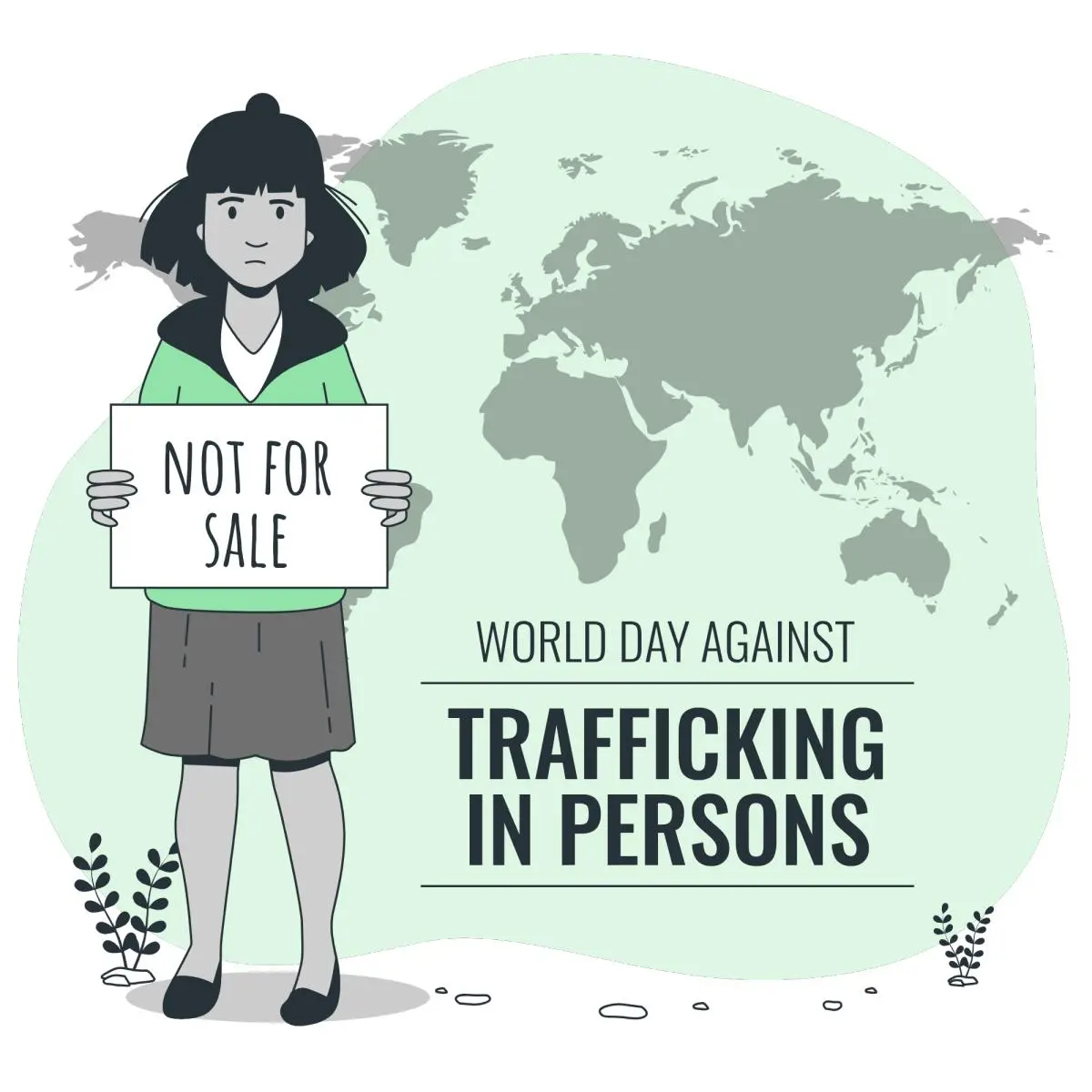The World Day Against Trafficking in Persons is observed on July 30th each year. This day was established by the United Nations General Assembly to raise awareness about human trafficking and to promote and protect the rights of victims. Human trafficking is a grave violation of human rights and a global problem that affects millions of people worldwide.
Table of Contents
The World Day Against Trafficking in Persons serves several purposes:
- Raise Awareness: The day is an opportunity to raise awareness about the issue of human trafficking and its various forms, including forced labor, sexual exploitation, and organ trafficking.
- Advocate for Victims: It emphasizes the importance of protecting the rights of trafficking victims, ensuring their access to justice, and providing them with support and assistance.
- Mobilize Action: Governments, NGOs, and individuals are encouraged to take action against human trafficking, whether through policy initiatives, awareness campaigns, or supporting victims.
- Promote International Cooperation: Human trafficking is a transnational crime, and international cooperation is crucial to combat it effectively. The day promotes collaboration among countries and organizations.
- Celebrate Progress: It’s also an opportunity to celebrate the progress made in the fight against human trafficking and to recognize the efforts of those working to prevent and combat it.
The United Nations Office on Drugs and Crime (UNODC) plays a leading role in coordinating global efforts to combat human trafficking and supports various activities and campaigns on this day. Many organizations, governments, and individuals around the world participate in events and activities to raise awareness about human trafficking and promote the protection of human rights.
The World Day Against Trafficking in Persons is part of the broader international effort to eliminate human trafficking and is aligned with the United Nations’ Sustainable Development Goal 8.7, which aims to eradicate forced labor, modern slavery, and human trafficking by 2030.
FAQs
When is the World Day Against Trafficking in Persons observed?
The World Day Against Trafficking in Persons is observed on July 30th every year.
Why was this day established?
The United Nations General Assembly established this day to raise awareness about human trafficking, promote the rights of victims, and encourage global efforts to combat this crime.
What are the goals of the World Day Against Trafficking in Persons?
The main goals are to raise awareness, advocate for the rights of trafficking victims, mobilize action against human trafficking, promote international cooperation, and celebrate progress made in the fight against human trafficking.
What are some common forms of human trafficking?
Common forms of human trafficking include forced labor, sexual exploitation (including forced prostitution), child labor, child soldiering, organ trafficking, and forced marriage.
How can individuals and organizations get involved on this day?
People and organizations can get involved by participating in awareness-raising events and campaigns, supporting anti-trafficking NGOs, educating themselves and others about human trafficking, advocating for stronger anti-trafficking laws and policies, and supporting victims through donations and services.
What is the role of the United Nations Office on Drugs and Crime (UNODC) in combating human trafficking?
The UNODC plays a leading role in coordinating global efforts to combat human trafficking. It provides support to countries in implementing anti-trafficking measures, conducts research and analysis, and raises awareness about the issue.
Are there specific Sustainable Development Goals (SDGs) related to human trafficking?
Yes, Sustainable Development Goal 8.7 specifically targets the eradication of forced labor, modern slavery, human trafficking, and child labor by 2030 as part of the broader global development agenda.
What are some signs that someone may be a victim of human trafficking?
Signs of human trafficking can vary, but they may include physical abuse, coercion, restricted freedom of movement, working excessively long hours, and living in deplorable conditions. Victims may also show signs of psychological distress.
Is human trafficking a global issue?
Yes, human trafficking is a global issue that affects countries and regions all around the world. It is a complex and pervasive problem that requires international cooperation and coordinated efforts to combat effectively.
